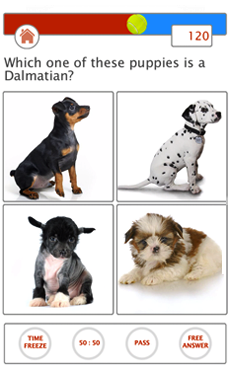Dachshund
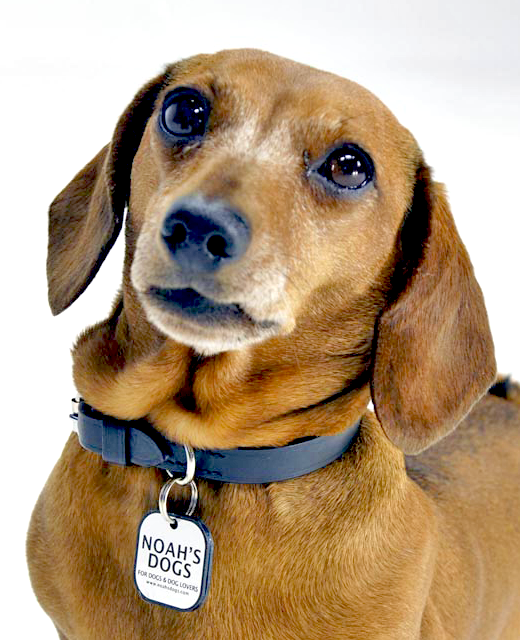
In my own words
Is that her? I’m getting antsy, my owners not back and I get easily bored when left to my own devices.
I’m a city bound hound living in a one-floor apartment, which suits me just fine because if I have to lug myself up too many steps it hurts my back. You see I have these awfully short legs and a long torso that causes me aches and pains. Though I may be small I’m a born hunter. These little legs are great for tracking ground-rooted prey.
You think I’m too small to hunt hey? Well I make up for my size with a feisty attitude.
I used to yelp and bark at the sight of strangers to show them that I wasn’t afraid of nobody and nothing! But my owner quickly put me straight- it wasn’t the right way to go about my business. I needed her to be strict and give me authoritative guidance. Otherwise I would have been one lost pup.
I can’t wait for her to come home. Thankfully she never leaves me for too long. We snuggle up and I crumble into a big softy!
My ideal owner(s)
Singles
City Dwellers
Families with older children
Hunters and outdoorsy types
What they say about me
Clever and curious
Tirelessly energetic
Always up for a walk or a game
Affectionate
Please read on, to find out more about me, and whether we could be happy together for the next twelve years, or even longer!
Is this Dachshund for you?
Test your knowledge about the Dachshund
Information essential about the Dachshund
Kennel Club Group:
Hound
Size:
Medium: weight male & female 11 lbs (4.9kg.)
Height male and female 5-7 inches (13-18 cm.)
Popularity:
During World War I, the breed lost popularity due to its Germanic origins, thankfully, prejudices have long been set aside and the dog is again a favorite family pet and hunting companion.
Breed History:
The Dachshund can be traced back to 15th century Germany. Dachshunds—coming from the German dach, which means “badger,” and hund, meaning “dog”—were used widely as hunting dogs. Their short, sleek frames and incredible sense of smell allowed them to hunt above ground, below ground and track animals for days at a time. Various sizes were developed over the years and the breed has come to exhibit "terrier" characteristics. They’re versatile and courageous dogs known to take on prey as large as foxes.
The most distant appearance of a Dachshund type dog has been spotted in ancient Egyptian and Mexican art. In addition, remains of a Dachshund type dog were discovered with shipwreck remnants in Italy, dating back to the 1st century AD. A most enchanting and richly traveled breed I’m sure you’d agree!
Though, the gene pool really came into its fruition, when Dachshunds were exported to Great Britain with Prince Albert, populating Britain and America throughout the 19th century. The Dachshund was lawfully recognised by the American Kennel club in 1885.
Character:
These intelligent pups have bundles of potential if lead by an owner who knows whose boss. The breed can become lovingly attached to their family and usually one family member in particular. It’s recommended that firm, consistent training techniques be used to overcome the dog's natural tendency to dominate, whilst not incurring a sense of injustice. Unfairly treated, a dachshund will sulk at length.
If partial to long trips you’re in luck because this breed travels well. Be warned though, they are instinctive diggers so any freshly gardened plants may be just collateral damage in the latest escape plan.
Temperament:
Hell hath no fury like a Dachshund scorned- without proper leadership from their owners they can be jealous, irritable, obstinate and very quick to bite. If you allow your little dog to take over your house, the dog will try his hardest to keep all of his humans in line. Such a heavy weight should not be placed on any dog's shoulders, especially one as sweet and as little as the Dachshund.
You see these negative traits are not Dachshund traits at all, they’re small dog syndrome traits. Meaning, most owners treat their small dogs like babies, rather than giving them leadership. Rules stating what they are, and are not allowed to do, which all dogs instinctually crave. Dachshunds who do have human leadership along with daily walks are wonderful family companions, with an excellent temperament.
However, they thrive with single people also. Very young children could lack the necessary patience and maturity required with Dachshunds. Though very loyal to their owners, Dachshunds can take time to warm up to other people. The benefit, however, is that their (sometimes) relentless barking at the sign of strangers makes them an extremely handy—and compact—guard dog.
Dachshunds, will also be happy in an apartment (they are among the most popular city dogs), but require lots of play, interaction and regular walks to stay in physical and mental shape.
Conformation:
There are three types of Dachshunds: Standard, Miniature and Toy. Their coats come in three varieties: the short-haired, the wired-haired, and the long-haired.
A Dachshund’s head should be long and tapered with the forehead showing a slight arch and blending, in an unbroken line to the bridge of the nose. Obliquely set, the eyes should be almond shaped. The nose and eye rims, as well as the lips should be black. High set, the ears are long and rounded at the tip. The jaws are powerful and the teeth should meet in a scissor bite.
The Dachshund “look” is hard to miss: long backed, short-legged dog of diminutive height. While small, the Dachshund is still muscular and powerfully built with a deep, broad chest and well-developed forelegs. The base of the neck slopes down to a protruding chest and a tighter abdomen.
Colour:
Their colours can vary but most dachshunds are black with tan markings or a solid reddish-brown colour. However, they can appear as reds, dappled, with tiger markings, or brindle. Some may have a limited amount of white on the chest. Bi-colour dachshunds may be black and tan, black and cream, chocolate and tan, chocolate and cream, blue and tan, or blue and cream.
If dappling occurs in the eye, one or both eyes may be blue. There have been genetic defects attributed to double dapple breeding.
Training:
This breed is intelligent but not particularly easy to train since it has a curious nature and a mind of its own. It can be very difficult to overcome the hunting instinct and train the dog to come when called. Early socialisation is required in order for it to learn to get along with cats and other dogs. Socialisation will also help it overcome its natural wariness with strangers.
Care:
The Dachshund can be fed dry or wet food once or twice a day. They can be greedy so be very careful to not overfeed as an overweight Dachshund is at much greater risk of back problems and other issues. Long-haired require daily combing and brushings; wire-haired need professional trimming twice a year, and smooth-haired require regular rubdown with a damp cloth.
If living in a place with a garden it must be very well fenced due to the above mentioned hunting instincts. Bear in mind that Dachshunds were bred to 'go to ground' and can dig under many types of fencing.
These are active dogs with surprising stamina; they need to be walked for 20-40 minutes daily. They will also enjoy sessions of play in the park or other safe open areas. Be careful, however, when pedestrians are about because Dachshunds are more likely to be stepped on than more visible dogs.
Health:
The most important health consideration with Dachshunds is their spinal problems. Due to the elongated nature of the body, the spine is prone to injury. Disc rupture, often leading to paralysis, is a common problem in Dachshunds. Stairs and jumping on and off furniture must be avoided. Surgical intervention can sometimes help with this ailment but many Dachshunds have to resort to carts to haul their hind limbs.
They can also be prone to skin ailments such as bald patches and lack of skin pigmentation. In addition, they are typically susceptible to ‘acanthosis nigricans’ a skin disease which causes a dark, thickened area especially at armpit. They are also prone to ‘pattern alopeica’ (patterned baldness).
If kept at a reasonable weight the dachshund can stay healthy and active to a good age and reach a lifespan of 9 - 15 years.
The average litter size is 5 to 6 puppies, although it is not unheard of for a bitch to whelp as much as 12 puppies.
You may also like:
Dachshunds looking for a home in UK »

If you like Dachshunds, you may be interested in breeds of the same size »
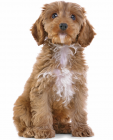
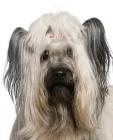
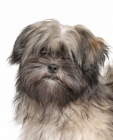
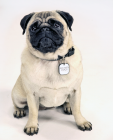
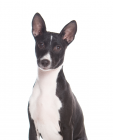
If you like Dachshunds, you may like other breeds with similar characteristics »
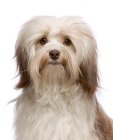
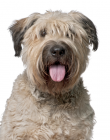
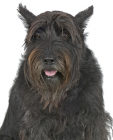
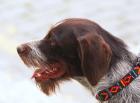
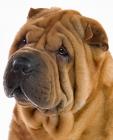
Advice on choosing your breed »
Find an animal shelter or rescue home where a Dachshund is waiting for a new home »
The following grid gives a fast track review, which covers all breeds. You can apply it to help you decide if a Dachshund is suitable for you, the environment where you live, your personality and your lifestyle. On the grid, 1= strongly disagree, and 5= strongly agree. For example, if you are looking for a dog that likes to hunt, look down the list under Activities, and you will see that Dachshunds are born to hunt, scoring 5. If you want a dog to cater to life in the city, look under Environment and you will see that Dachshunds are typical pets for the urban owner, scoring 5. You might like to save or print off this section and keep it for reference while you check some other breeds before making your final choice.
Be the first to rate this breed »
|
*PLEASE NOTE: All our breed profiles are general, and all dogs are individuals. Always talk to the breeders and meet the owners you are buying from. Try to meet the dog and its parents if it is a puppy in their home environment.












